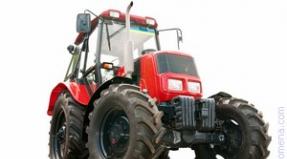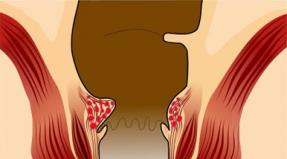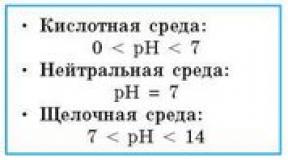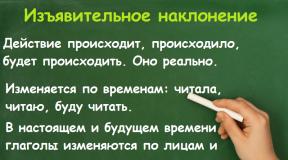Technology respite. “Respite” - help for parents of special children. See what “respite” is in other dictionaries
For almost two years now, the “Respite” project has been working in Novosibirsk - the first and so far the only one in the region. It is intended for parents with disabled children with various diseases - musculoskeletal disorders, cerebral palsy, mental disabilities, behavioral disorders, Down syndrome and other developmental disabilities.
The project is being developed on the basis of the Comprehensive Center for Social Adaptation of Disabled People. Its essence is the creation of a rehabilitation environment for disabled children and the provision of “respite” for their parents, who are always close to their child. Teachers, speech therapists, defectologists, neurologists, and psychiatrists work with sick children at the center. Our correspondent learned more about the “Respite” program after visiting the Complex Center.
A little history
The Adaptation Center did not emerge out of nowhere; Even in war and post-war times, it was necessary to provide education and a profession to people who received physical illnesses. They needed the help of specialists to adapt to their new life and not feel thrown out of society. The modern building was built in 1970 and until recently housed an educational boarding school for the disabled. And in 2009, the institution became a Comprehensive Center providing social, medical and educational services. At first, the principles of work were the same: the emphasis was on young disabled people who needed to gain the first skills to master a profession. But at the end of 2012, the attention of specialists was attracted by the parents of disabled children, who were often left alone with their problems. In collaboration with the Society of Disabled People of the Leninsky District (chairman Natalya Skaredov), the concept of the “Respite” project was developed.
Cornered
We understood - says Deputy Minister of Social Development of the Novosibirsk Region Galina Lysova,- that children with a disorder of the musculoskeletal system, and even mental retardation, are a heavy burden for their parents. For such children, society is their home with four walls. But the mother needs to somehow resolve the issue of physical treatment for the child, physical therapy, training, contact with the medical and pedagogical commission. Yes, and you need to live somehow! For the same medical examination, it is impossible for the mother to go to the hospital herself - she is tied to her home, to her disabled child. We saw that these mothers (unfortunately, they are mostly incomplete families) are our potential wards. We saw how they gave up on themselves and realized that something needed to be done.
Mothers needed a break, and children needed social adaptation. It was important for the children to communicate with their peers and equally important to receive help from doctors and teachers. And today we can already sum up the first results!
” Over the three years of the Center’s existence, 100 children received help. Two years of operation of the “Respite” program have shown how much it is in demand, and most importantly, how useful it is. During this time, some of the children stood up on their feet using walkers, while others took a spoon and began to eat on their own. Someone learned to open a water tap, many gave up diapers, and this is also a great achievement.
 Children have become less aggressive and more sociable. Specialists had to work hard to minimally adapt special children to life in society.
Children have become less aggressive and more sociable. Specialists had to work hard to minimally adapt special children to life in society.
For its part, the management of the Center has done a lot for the comfort of children: the toilet for children in wheelchairs has its own section for them, and it has become possible to get to the assembly hall, where concerts and holidays are held, by lift.
” Parents, while their children were being treated at this center under the “Respite” program, were able to solve their problems. Some mothers got a job, others got a new specialty, someone was finally able to deal with the housing issue, there are mothers who managed to improve their personal lives and get married. Several families now have brothers and sisters of the Center's little guests - by the way, all of them are healthy children. That is, the family got the opportunity to develop and live a full, active life.
What's next?
But such rehabilitation at the Complex Center only takes six months. What to do next? Yes, mothers got jobs, their children began to develop dynamically. But how can these achievements be consolidated? After all, all this can come to naught again if you don’t take care of the children...
” The Ministry of Social Development and the very center thought, consulted, talked with parents, and came to the conclusion that it is necessary to open places on a paid basis. Parents supported this idea because mothers had the opportunity to work.
Our rehabilitation course is 6 months, - says the director of the Integrated Center Larisa Pugacheva,- then, if parents want, they go for paid services. And then they can return to the budget again, if there is free space. We must give other children in need the opportunity to come to us.
”- The most complete range of services in the paid department is about 10 thousand rubles for 21 days. But parents don’t always use 21 days; sometimes they can bring a child, sometimes not, and on average it comes out to about 7 thousand rubles a month. All our tariffs are approved by the government tariff department, the prices are quite reasonable. So far, the complex has 26 budget and 10 paid places, and this is quite enough.
But if the need arises, we will open new places. Today the department is designed for children aged 7 to 11 years. But parents are already worried, what will happen next to their grown children? Therefore, we are now thinking about creating places in the department for teenagers aged 12 - 14 years.
How to get to the Comprehensive Center?
Currently there are no difficulties in getting here. On the contrary, if earlier mothers were looking for such “shelters,” now the center’s leadership goes to the people.
Now they are not looking for us, but we are looking for them, - Larisa Pugacheva says. - We are here, we are ready to work, we are ready to accept new children, and we want people to know about us. Naturally, we will not allow queues - we will find a way out of the situation. Therefore, we are not afraid to become popular.
”- When we first opened (and it was August 1, 2013), and the first parents came, they were very concerned that someone else would come here and their rehabilitation period would be shortened. And they kept information about our institution so secret that they hid it even from their closest circle. But our goal is to cover as much as possible more families where there are disabled children.
 The center’s specialists themselves began to disseminate information: work with correctional schools, visit clinics, and attend social, medical, and psychological commissions. And now many people know about them and contact the Center directly. Employees of the institution supervise such people, suggest how to collect a package of necessary documents, and coordinate this process. After all, it shouldn’t happen that a parent wants to get there, but can’t. From January 1, the situation should change in better side, because it was in January that the new, 442nd law on social services came into force, according to which social protection authorities located in the territory where a disabled child lives must actively work with such children and their parents, refer them to rehabilitation centers.
The center’s specialists themselves began to disseminate information: work with correctional schools, visit clinics, and attend social, medical, and psychological commissions. And now many people know about them and contact the Center directly. Employees of the institution supervise such people, suggest how to collect a package of necessary documents, and coordinate this process. After all, it shouldn’t happen that a parent wants to get there, but can’t. From January 1, the situation should change in better side, because it was in January that the new, 442nd law on social services came into force, according to which social protection authorities located in the territory where a disabled child lives must actively work with such children and their parents, refer them to rehabilitation centers.
” From January 1, the Comprehensive Center began working directly with social support departments, talking about what services it can provide and who can come to it. And social protection, in turn, should help parents, push them to take care of their children, and set them up for a positive outcome.
“In our center,” continues Larisa Dmitrievna, “children from all districts and urban districts of the region can undergo rehabilitation under the “Respite” program. Now these are mainly guys from Leninsky, Kirovsky, Novosibirsk rural areas and the city of Ob.
For more information about the rehabilitation program, you can contact the Comprehensive Center for Adaptation of Persons with Disabilities by calling 314-79-72. Details are available on the Center's website.
And to collect Required documents, parents need to go to the social security authorities at their place of residence. There, a package of documents is compiled for the child, his personal file, and an individual rehabilitation program is created. Registration takes about a week: you don’t have to undergo a medical examination, an extract from the child’s card is enough.
Photo from the site Comprehensive Center for Social Adaptation of Disabled People
Do you think this information is important?
Zhenya and Sasha came from a walk. Nurses take them out of their strollers and carefully place them in their cribs. Both children have very “severe” diagnoses. They can dress, eat, and walk only with the help of an outsider. Most often, this person is the mother.
Every mother knows that caring for a seriously ill child is not easy work. But when a child is terminally ill from birth, it is a thousand times more difficult. Seemingly simple things like making repairs, going on vacation, or simply spending time for yourself or other family members or your husband are an almost impossible task.
Social respite
Two years ago, parents of special needs children had the opportunity to entrust the care of their child to a professional service. It is called respis, which means “social respite.” This project appeared thanks to the joint work of the Orthodox help service “Mercy” and the Martha and Mary Convent of Mercy.
Respis is a joint project of the Orthodox aid service “Mercy” and the Martha and Mary Convent. Photo: AiF/ Alexey Vissarionov
“Almost all families in which a sick child is growing up need register assistance,” I am sure Head of the register Natalya Benova. — As a rule, such families do not have free personal time - their whole life is focused on caring for the child. And such a social respite as our respis provides parents with the opportunity to relax.”
The Respis is located on the territory of the Marfo-Mariinskaya Monastery. There are 6 beds in total. Parents can leave their child on the register only once a year and for no more than a month. Cystic fibrosis, cerebral palsy, Rett syndrome, intractable epilepsy, amyotrophy - this is only an incomplete list of diagnoses for patients on the pediatric register. His patients are forced to live on medications, they need special care and rehabilitation means.

Almost all families with a sick child need help. Photo: AiF/ Alexey Vissarionov
“There are a little more than 60 children on the register every year. Those families who have visited us at least once sign up in advance. As of today, we have already planned out the whole of 2017 and have a separate list of those parents who are ready to bring their child to us if someone suddenly refuses,” says Natalya Benova.
Of course, few parents immediately decide to leave their child in the care of strangers. Therefore, mothers have the opportunity to spend the first time in the register with their child.
“Parents believe, and they are, of course, to some extent right, that no one else can take care of their child like that - feed him, talk to him, calm him down. Therefore, the first time they come to us and leave their child, they call a lot and come often,” says the head of the register. “But then they realize that no one hurts their child here, the child eats well, is looked after like at home, at least no worse, and the parents stop worrying and freely leave their children in the future.”

The child is on guard 24 hours a day. Photo: AiF/ Alexey Vissarionov
Ease suffering
Zhenya and Sasha are here without their parents. They simply don’t have them - they are pupils of an orphanage, awaiting surgery in one of the capital’s clinics. Perhaps the respis is today the only place where they are truly cared for with maternal warmth.
“Sasha, you can’t bite your fingers,” the register employee gently says to the child. - You are hungry? Now it will be lunch!” The baby smiles and tries to blow a kiss.

Respis is to a greater extent not a medical institution, but a social institution. Photo: AiF/ Alexey Vissarionov
Both children have cerebral palsy: the boy has stopped epilepsy, and the girl has constant seizures. Sasha reacts to intonations, tries to communicate, but sees nothing. But his roommate, 7-year-old Zhenya, does not make contact. Baby before three years developed normally until she was injured by her own mother while under the influence of drugs. Since then, the girl has closed herself off.
The need for registers is great
The census is another confirmation that seriously ill children can be helped, even though they cannot be completely cured. These 4 weeks a year that a child can spend in the registry are, although a short period of time, but a huge help for the family. “It’s all completely free for families. The respis works on donations from caring people,” says the head of the respis, Natalya Benova. “All we have are private donations, an account and regular donors who transfer funds so that the register exists. Maintaining a register, employee salaries, food - all this requires large expenses.”

The respis is supported by donations. Photo: AiF/ Alexey Vissarionov
Residents of any city in Russia, regardless of religion, can nominate a child for inclusion in the register of the Marfo-Mariinsky Monastery. Parents will be provided not only with the respite they need after many years of fighting their child’s incurable illness, but also with medical advice on how to properly care for their child and what position to choose so that he can sit or lie comfortably. And the child himself will change the environment and receive help from professional psychologists, play therapists and exercise therapy specialists.

Parents leave positive reviews about the list. Photo: AiF/ Alexey Vissarionov
“The need for registers in our country is very great, this is a sought-after service,” says Natalya Benova, “but in order for registers to appear in our country in the regions, we need to create palliative departments for children, children’s hospices, public, private, private state ones, then more people in need will receive help. In fact, a lot can be done for children with cerebral palsy, amyotrophy and other incurable diseases. Their lives can not only be made easier, but also significantly extended with proper care, habilitation and psychological support.”
The autonomous non-profit organization “Partnership for Every Child” held the first lesson in the last two years at the School of Professional Partnership Families. After two months of training, school students will participate in the “Respite” program and help families raising children with disabilities.
The last time training was conducted at the School of Professional Partnership Families was in 2012, the ANO “Partnership for Every Child” said. Among the listeners are students of the Faculty of Correctional Pedagogy of the Herzen Russian State Pedagogical University, educators kindergarten, psychologists, defectologist, young male engineer, mothers of children with special needs.
Training for professional partner families will be provided free of charge for two months. Listeners will learn why a family and a child need short-term accommodation, get acquainted with the algorithm of the “Respite” service, learn how to interact with a disabled child, and how to choose the right gaming and entertainment materials for a child. Social educators, psychologists, and lawyers work with students. Upon completion, students will receive certificates giving the right to paid work with special children as a professional partner family of the “Respite” program, implemented by the ANO “Partnership for Every Child.”
The “Respite” program provides an opportunity to support parents raising children with severe disabilities, helping them get time for a “respite” by placing the child in a professional partner family. This service helps reduce psychological tension in the family and reduces the risk of moving the child to a boarding school, the organization notes.
In St. Petersburg, according to experts, there are 14.2 thousand families with disabled children, of which about 3.5 thousand are children with severe forms of disability (for example, cerebral palsy combined with mental disorders).
“Such children cannot care for themselves, speak, walk, they often have difficulties in communication, they do not orient themselves, they do not control their behavior. Nevertheless, children need communication, treatment, and service. Parents are forced to be with them 24 hours a day. This leads to the accumulation of fatigue, parents do not take care of their lives, cannot work, and the disability pension is small. Psychological tension is created in the family such that it makes parents want to transfer the child to a boarding school. The “Respite” program allows you to invite a professional partner family home and thereby help families with disabled children,” says Tatyana Kraineva, PR director of the ANO “Partnership for Every Child.”
Today, 40 professional partner families provide services to 153 families.
The cost of one hour of “respite” is 250 rubles. ANO “Partnership for Every Child” can provide 360 hours of “respite” per year - this is several hours a month or two weeks of vacation for one family. There are families in which the need ranges from 500 to 1 thousand hours per year.
“In Russia, the state allocates from 600 thousand to a million rubles a year for the maintenance of one child in a boarding home. According to our program, for a child to stay with his family, it is enough to raise up to 100 thousand rubles a year,” say the organization’s specialists.
Anyone who has a desire to help families with children with disabilities can take part in the program.
“One woman who came to Respite as a professional mom partner read Gonzalez’s book, Black on White. It was written by a Spanish boy who has cerebral palsy. He got into Russian system orphanages and spent almost 20 years there. This is a very touching book and is only 24 pages long. The woman said that this story made a strong impression on her, and she wants to help so that as few children as possible end up in nursing homes and stay with their parents,” says Tatyana Kraineva.
As experts note, partner families are needed not only by parents, but also by children with disabilities themselves, as they provide the opportunity to communicate with new people and gain socialization experience.
“If you had asked me before what caring for a disabled child was, I would have answered that it was lifelong solitary confinement. The appearance of a partner family from “Respite” brought me out of the deepest depression, from a mentally abnormal state,” notes the mother of a child with a disability, Anna Antonova.
“The idea of “Respite” is grandiose. As a mother who has been through many different struggles, I know how important it is for parents to sometimes be able to step back from the endless issues of parenting, treatment and maintenance. We have been using the Respite service for about three years. She gave us something that I would not have had the strength to do alone: the opportunity to communicate with other people and gain new experiences helped my son develop,” Olga Mallaeva says about the program.
Reference
The “Respite” program was created by employees of the ANO “Partnership for Every Child” in 2007. The main principle of the program is “We are changing the world by giving every child the opportunity to grow up in a strong, loving family" Over the seven years of the program, 216 families raising children with severe disabilities received 77 thousand 320 hours of “respite”. The Partnership trained and provided employment to 40 professional partner families. Since 2013, the distribution and implementation of the “Respite” model has been carried out in the Tver, Novosibirsk, Volgograd regions, and continues to work in the Murmansk region.
Yulia Vyatkina
I learned about the “Respite” project from Snezhana’s mother. She has been involved in the project for a long time and highly recommended it to me. It so happened in the family that at the age of 61 I became the adoptive parent of my own 8-year-old grandson, a “single grandmother.” Although there are other relatives, they refused to help me raise my child. Another grandmother even said the phrase “you yourself signed up for this, now bear your cross.”
Being a single mom is hard, but believe me, it’s harder being a single grandmother. Sometimes I fell into despair from a bunch of problems, urgent matters, lack of time to solve them and from people’s callousness. And like a breath of fresh air - “Respite”. Without bureaucracy, without the red tape that foster parents always face in government organizations, I was included in the project.
My child is special, he is wary of strangers, I was afraid that nothing would work out and he shouted out loud, “I won’t stay and play with anyone.” But again a miracle happened - he saw a nice girl who came to us, listened to our conversation from another room and came himself and started talking.
Now 2 times a week I don’t have to worry about doing my homework. It is done with sitter quickly and without fuss. And at this time I began to sort out my urgent matters and felt less alone.
Many thanks to the project team! Sponsors! You literally save people from troubles with your support. You make us believe that there is still good in this world! There are people who help families like ours, not in word, but in deed.
Now I believe that everything will be fine!!!
I am a foster mother of two children: Efim (2 years old) and Ilaria (6 months old). Our son is a foundling; he lay in a bag at the hospital door all night, became hypothermic and almost died. He was treated in intensive care with pneumonia. We adopted him when he was 2 months old. My son is growing up very smart, at the age of 2 he already speaks everything clearly, has learned the entire alphabet, and recites Agnia Barto’s poems with me. We adopted our daughter in March, it was the best March 8th gift of my life.
When my husband went to work, I realized that I needed help. Our Efim is very active, it was especially difficult to walk with two children. So I started looking for options. Needed a nanny for a walk. That's when I contacted. To be honest, I was very worried and afraid to trust my children to a babysitter, but everything went quite smoothly.
With babysitters, I could easily feed the children, get them ready for a walk, take them for a walk, come back and change them. For us, this help is very significant. For now, children take up all my time with my husband. If we’re lucky, and we continue to be involved in the project, there are plans to go somewhere with my husband, even just to walk for an hour together. Thank you, we are very grateful!
The “Respite” project is my joy and salvation. For almost a year now, girls from this project—babysitters—come to us twice a week in the morning. They walk with the child for two hours. During these two hours I have time to work, do all sorts of different things, and sometimes - most importantly - just be alone.
We have a grandmother, we have relatives who are ready to come and let my husband and I go on a visit or on business in the evening, but, of course, it would never occur to me to ask someone to come just to take a walk or play with my son while I I'll be home. And “Respite” doesn’t care what I do during this time, it just helps. Thank you!
To give at least a little rest to the parents of adult children with disabilities and to save as many families as possible is the goal of the “Respite Plus” project. The Association of Public Associations of Parents of Disabled Children (GAOORDI) launched this program in April 2016. Program manager Elizaveta Fafurdinova talks about how Respite Plus works.
Currently, 20 “special” families participate in the program, as well as 14 families who are ready to help parents of disabled people free up time for their needs - for a few hours or even days - and take care of their children.
Elizaveta, is “Respite Plus” an in-house development of GAOORDI or are similar services already provided?
The peculiarity of this project is that it affects families in which disabled children have already grown up. This is an innovation for Russia. There are many variations on the theme of “respite”, but all of them are aimed at helping parents of minor children. And parents of disabled adults completely fall out of the information and charity space, although after the child’s 18th birthday their needs remain the same. When developing our program, we relied on the experience of colleagues from the St. Petersburg organization “Partnership for Every Child,” which already provides similar services. “Respite Plus” is a successor project to children’s “respite”.
That is, families in which children have reached 18 years of age are transferred to your project?
Some yes. But at the moment there is no single, well-functioning system of “exchange” of families between GAOORDI and the “Partnership for Every Child”, since our project is still very young and we do not have sufficient funds and resources for this. For now, we provide services only to the most severe children with group I disabilities, often with multiple disabilities. There is also a shortage of host families.
What is it connected with?
It is important for us to understand what motives guide a person when he comes to a project. Of course, he gets paid for his work, but we constantly explain that Respite Plus is not an analogue of a caregiver and is not just a way to make money. Our wards must be confident in their helpers and know that they are leaving their child with trained and properly motivated people.
When selecting a family, we always ask parents if they have friends who are ready to provide a “respite” service, and often such people are found. It is more comfortable for a family to entrust the child to someone they know. All we have to do is educate and prepare such people. Now, until the service has become global, the most effective channels for finding host families are word of mouth, the media, social media and our website, where any person who finds the strength and desire to help can fill out a host family questionnaire, and we will consider it.

What training does a host family undergo before starting work?
To begin with, we conduct a detailed interview, during which we ask the candidate about his biography, family composition, and the motives that prompted him to offer his help. Thanks to such a complex selection system, there are no random people in our project, and we can be quite confident in each host family.
After successfully passing the interview, the family begins training at the School of Host Families. The school conducts nine classes on various thematic blocks about developmental disorders and problems that a host family may face. The thematic blocks are as follows: autism, motor, sensory, various multiple disorders and, of course, rules for caring for bedridden patients. The course is required for everyone, regardless of education (both doctors and teachers join the project). Our program provides basic practical skills, and everyone who took it noted that it was useful.

How often can a family use the respite service?
Families with whom we have an agreement have 360 hours of respite per year, which they can use as they see fit. Mothers get the opportunity to go to the store or clinic without haste and relax. If a situation arises when a parent must leave for several days, we try to find a host family for the entire period of absence, up to 15 days. However, more often than not, our families are very careful about their hours and try to distribute them evenly throughout the year.
How is the project financed?
Currently, the program is financed from various sources, which, unfortunately, do not cover all costs. We are constantly looking for new sources of funds and have launched a crowdfunding project on the Planeta.ru platform. GAOORDI is preparing to enter the register of social service providers. However, the paradoxical difficulty with Respite Plus is that we provide assistance to adults, and such a service is not on the list. That’s why we “collect” it from various household services, and this requires considerable ingenuity. We hope that the project will develop, as we are confident that the relaxation that participation in “Respite” gives a family is an alternative to placing disabled people in boarding schools.

Who helps, who helps
Each host family and family that needs a “break” has its own story. Evgenia Zh. recently became a host mother. She is raising a child with special needs herself. “While my son is at school, I have free time. And when I found out about Respite Plus, I realized how it could be used. After all, I know how important it is to give at least a minute of rest to a mother who devotes so much energy to caring for her child,” says Evgenia.
Ilya P. is 76 years old and for 10 years after the death of his wife he has been raising his son Alexei alone. My son has a complex diagnosis and requires constant care, and Ilya gets tired quickly due to his health condition. Thanks to the “respite” service, he had the opportunity to devote some time to himself.
Tatyana F. is a music teacher with extensive experience; she worked for quite a long time in a rehabilitation center with disabled people. She is now retired and happily agreed to participate in the Respite Plus program as a member of a host family.
Who can become a host parent
To participate in the “Respite Plus” program as a host family, you must have Russian citizenship and registration in St. Petersburg or Leningrad region. Candidates aged 18 to 70 years who are not registered with psychoneurological, drug addiction and tuberculosis dispensaries are considered. Those wishing to participate in the program must fill out a form at
Read also...
- M. V. Koltunova language and business communication. Language and business communication Etiquette and protocol of business communication
- The Last of the Mohicans Fenimore Cooper The Last of the Mohicans
- Descriptive phrase for the word flower
- Mikhail Zoshchenko - Don't lie: Fairy tale Don't lie Zoshchenko genre



















